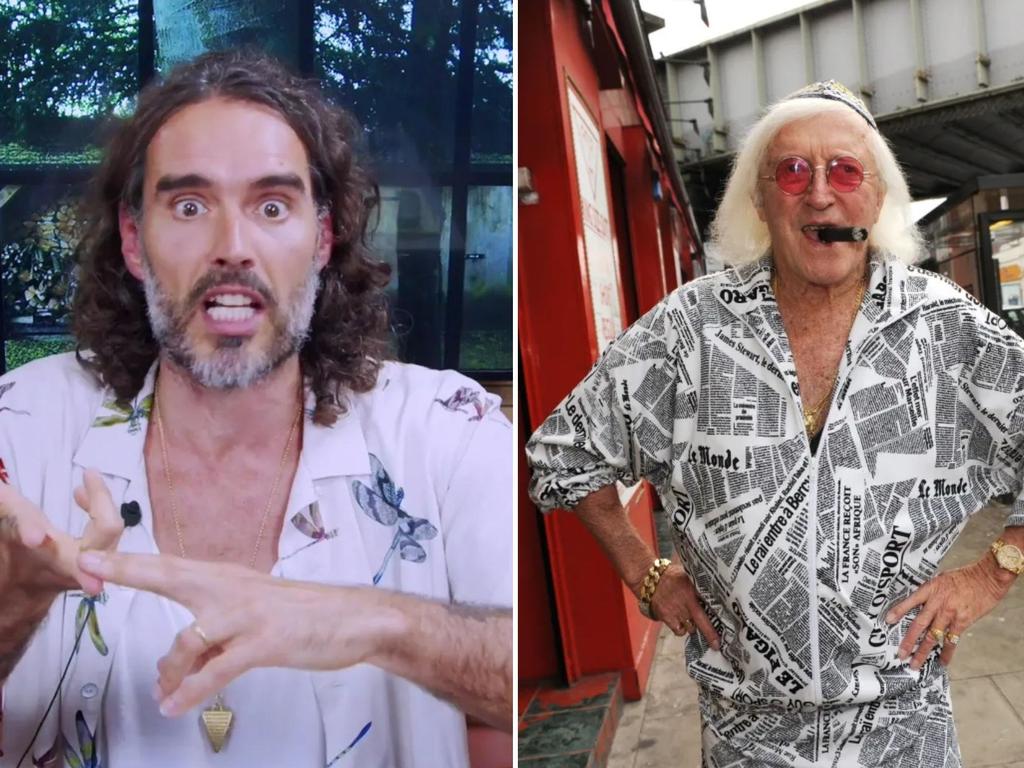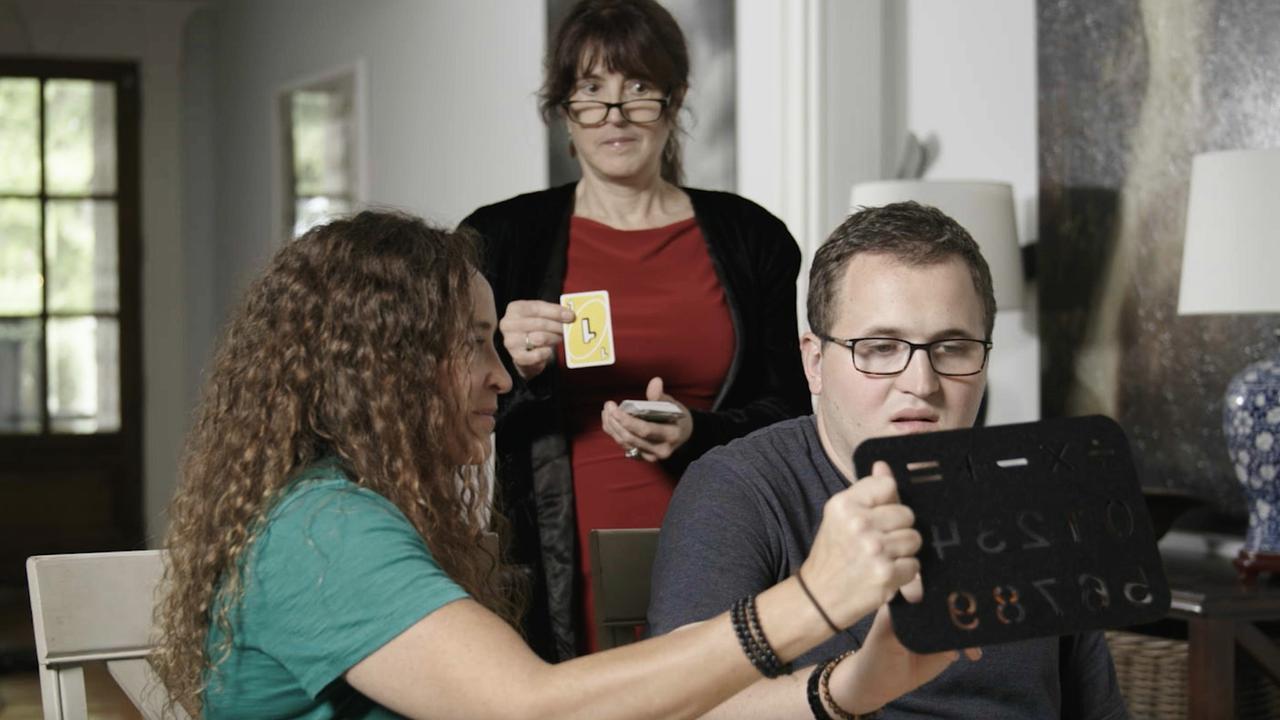Rapist, pedophile, necrophiliac Jimmy Savile held to account
Britain’s best-known presenter of TV programs for young people was simply one of the most evil men who ever lived. Does funnyman Steve Coogan capture the extent of his depravity?
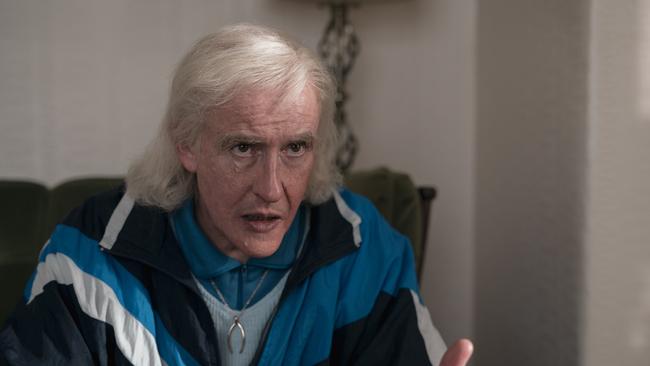
For Australian audiences, the terrible story of Sir Jimmy Savile, OBE KCSG, an evil court jester in a polyester leopard-print track suit, who was the worst pedophile, rapist and necrophiliac in British criminal history, is perplexing and bewildering.
We never really knew him, and I can’t remember seeing any of his almost countless shows in the past, and those of which I have recently looked at are not particularly funny, just a reminder of the depravity behind the scenes.
The UK’s best-known presenter of TV programs for young people was simply one of the most evil men who ever lived. While there were news stories here following his death, we had little collective idea of just why he will haunt generations.
He died in 2011, with a headstone, later removed, that said: “It was good while it lasted”. It was engraved in Gothic gold lettering, his final resting place encased in concrete to deter thieves from knocking off his gold bling. His funeral was a celebration of a loved clown.
One eulogy said: “If there’s a heaven, he’ll be laughing now if he’s got time. Because if there is a heaven, he’ll be introducing Elvis on the clouds.” His galvanised steel coffin was carried by eight Royal Marines, the white Yorkshire roses on his coffin joined by a floral tribute spelling out 208 in the shape of the old Radio Luxembourg logo, the station that launched his career.
From the earliest days of commercial radio to the BBC’s national Radio 1, the first and last editions of Top of The Pops, and Jim’ll Fix It, his career spanned the decades. He worked tirelessly as a volunteer in hospitals, including the Leeds General Infirmary where porters stood outside in silence as his cortege passed by.
But the myth came crashing down almost a year after his death when ITV broadcast a documentary, The Other Side of Jimmy Savile. It revealed claims by up to 10 women, who said they’d been molested or raped by Savile during the 1960s and 1970s. Soon Scotland Yard opened investigations, uncovering hundreds of alleged offences, most against children. One Metropolitan police commander said, “He groomed a nation”.
Hundreds of allegations of sexual abuse and recollections of witnesses followed, which expensive lawyers and strong connections with the media and police had kept hidden during the presenter’s lifetime.
The Reckoning, a four-part docuseries from ITV for the BBC, with a mesmerising Steve Coogan as Savile, is a thoughtful, well-crafted if chilling story providing considered, highly researched insight into how Savile created himself and developed his ability to manipulate and control his victims. And how he so brilliantly created the persona of the charity-helping jester, jolly disturber of the peace. And above all, the drama asks how and why did he get away with it?
It’s from experienced producers Neil McKay and Jeff Pope and, like their other work together, it’s an engrossing socially purposeful drama from creators who, as collaborators, are accustomed to debate surrounding their supposed exploitation of notorious crimes.
Their previous collaborations include This Is Personal: The Hunt for the Yorkshire Ripper and dramas about the serial killers Ian Brady and Myra Hindley (See No Evil: the Moors Murders) and Fred and Rose West (Appropriate Adult).
All four episodes of The Reckoning are directed with just the right kind of reserve, and an illuminating sense of period, by experienced Sandra Goldbacher, best known for her movies Me Without You and The Governess.
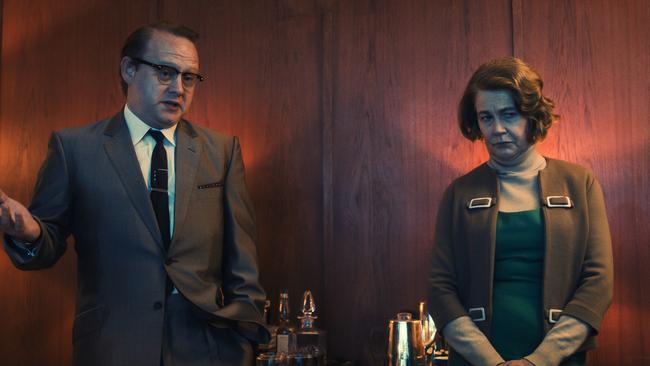
It’s demanding to watch but morally conscientious, a suffocating narrative that is never sensationalised. You can almost hear the lawyers discussing it scene by scene, though the series still created a deal of controversy, especially from The Sun and The Daily Mail.
Each episode of The Reckoning is bookended by interviews with four brave people whose assaults by Savile are dramatised in the series. One newspaper report suggested that the BBC “ordered” these inclusions to make the drama more sympathetic to victims. Totally untrue, says Pope: “The real victims were in there from the first draft. We taped their interviews and then Neil used some of their words in the scripts. Later, we reinterviewed them on camera. But they were always there as a concept.”
Pope told the Radio Times, “The theme of a lot of stuff that Neil and I do is that it’s a warning from the past.” And McKay fervently believes that drama – unlike documentaries – puts you immersively right in the middle of these scenes.
Savile started out as a dance-hall DJ in Manchester. And DJs enjoy controlling a room. So, McKay paints him as a manipulative conman. “What we try to show is how, in successive institutions – Leeds General Infirmary, the pop business, the BBC, eventually Margaret Thatcher’s private office and beyond – the mechanics of Savile’s con worked. That’s what I think only drama can give you.”
The series is based in part on In Plain Sight: The Life and Lies of Jimmy Savile by Dan Davies, the culmination he says of decades of obsession. “It’s a riveting read; pacy, incredible, gobsmacking, though Savile eludes to the very end,” the Guardian said.
“He is impenetrable, unknowable, the black hole at the heart of the book.”
Davies, played by Mark Stanley, appears in the series, kind of creating a framework for the unfolding narrative, often thrown off balance as he’s sucked into this kaleidoscopic world of anecdote and well-polished stories. Stanley captures his awareness of what Davies calls Savile’s “suggestion of menace in his manner”, always slightly discomforted.
What comes through in these scenes is the callous way Savile, obviously highly intelligent, is litigious and extremely well connected. And how the well-refined, practiced stories he told, shaped, and fitted around his narrative.
It begins with actual footage of Savile’s ornate funeral followed by a disclaimer.
“This drama examines how he was able to hide in plain sight, using his position to commit countless sexual offences, many against minors and how the voices of so many were ignored and silenced.”
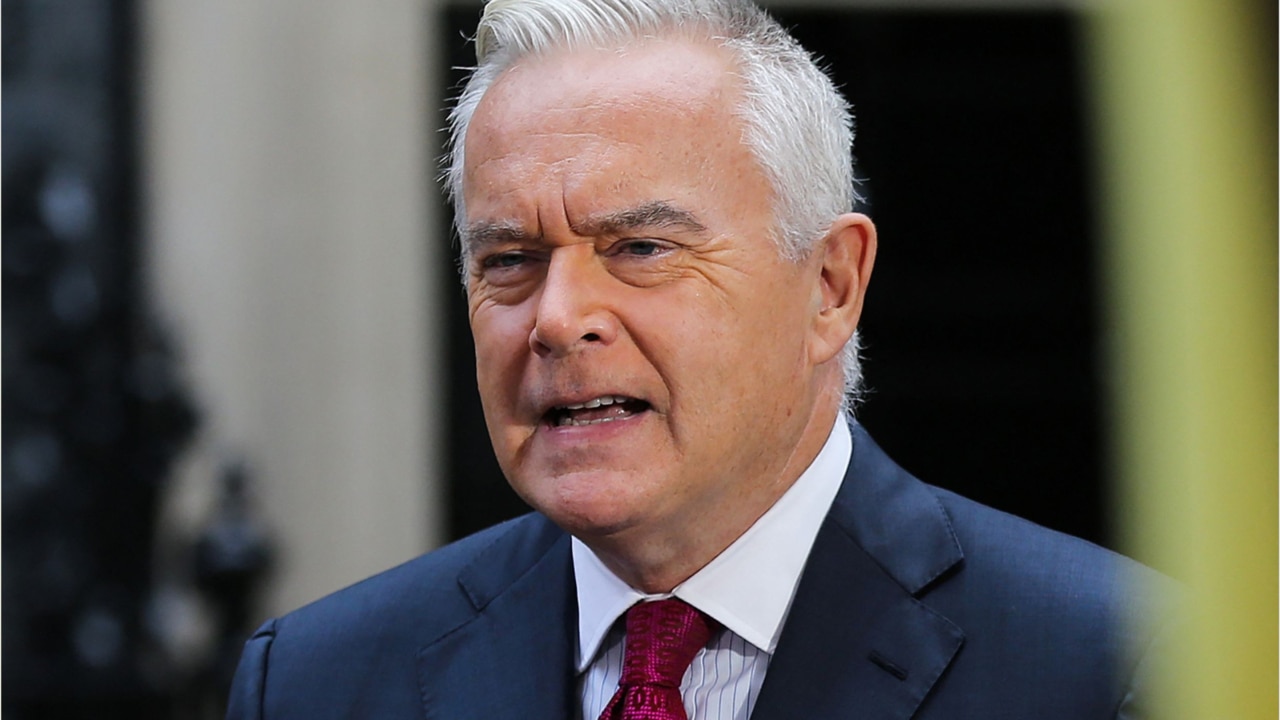
Then the sequences with interviews with Davies begins, “Doctor Wordsmith” Savile calls him. “There’s rumours that there’s another side of you, Jimmy,” he asks later. Savile puffing smugly on a huge cigar, smiles and answers, “It was all clean fun.”
Later, he smiles, “The talk of Leeds”, and says, “When opportunity knocks, that’s my motto.”
The first episode is told largely from Savile’s point of view through his interviews with the accommodating but sometimes bewildered journalist. He’s living in Salford, in Greater Manchester, with a young friend Ray Terel (Robert Emms), “Jimmy’s Little Helper”, already the king of the city’s music scene running the dance halls, especially the Mecca, “Jimmy’s Palace of Pleasure”.
We are introduced to his mother, “The Duchess”, beautifully played by Gemma Jones, who is already concerned for her son and “the terrible darkness in him.” He simply shrugs it off. “My business with young people, mother,” he tells her, “is to sprinkle some stardust into their dreary lives.”
He’s already assaulting young women in his clubs behind closed doors and, at the Leeds General Infirmary, coldly adept at gaining entrance to get to the heart of institutions caring for the defenceless, taking over the hospital’s internal radio service. From the start his deviousness and comic fulsomeness grant him protection and reward.
“He’s only being Jimmy,” people say of alleged misdemeanours, “making people feel better.”
We follow Savile into the BBC, where he becomes compere of Top of the Pops, following a relentless charm offensive, its producers still wilfully ignorant of the accusations against him already circulating. He fits right in, they tell him. “We love Benny Hill and the Black and White Minstrels.”
And he loves it. “I have dollies to the left of me, I have dollies to the right of me, soon I’ll have dollies beneath me if I’m not careful,” he jokes.
Coogan is extraordinary in the role, the mannerisms exactly calculated, the sloping walk, odd little dances, that intense, evaluative look whenever a young woman takes his fancy. And, often dressed in medieval jester’s costumes complete with baubles, he’s as unsettling as he is amusing.
Coogan says he avoided impersonation because it can make people laugh and trivialise. “The front Savile adopted was incredibly theatrical – he often put on ‘an antic disposition’ – which lends itself unhelpfully to comedy,” he says. “I had to be really mindful of that and think about it in different ways to inhabit it credibly and not undermine the fact of what a terrible person he was.”
The title according to McKay represents “our reckoning with him as a nation” but there’s also the Christian notion – Savile was a weirdly devout Catholic – everyone, after death, is called to account for his or her actions committed in life. We can only hope that somewhere Jimmy Savile is being held to account.
The Reckoning, Wednesday, BBC First, 8.30pm.



